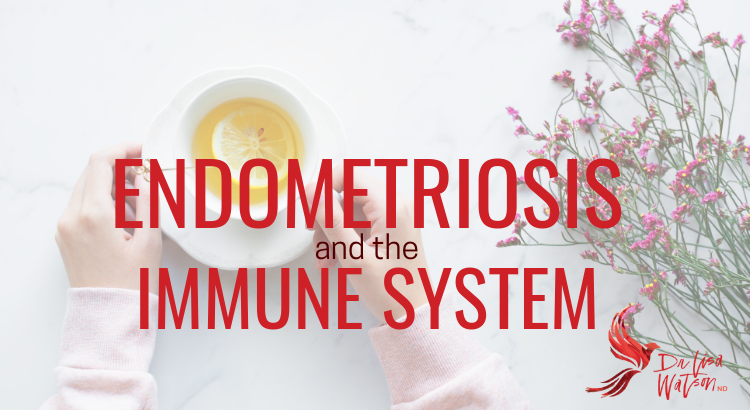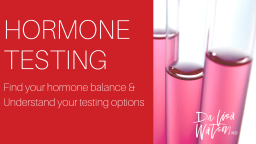
Endometriosis results when rogue endometrial tissue implants outside of the uterus. One of the leading theories behind the development of endometriosis is that retrograde (backward) flow of menstrual blood spills out of the fallopian tubes and implants on the fallopian tubes, ovaries and other areas. But studies have shown that nearly all women experience some degree of this backward flow – why do only 1 in 10 women develop endometriosis?
The answer, it seems, may lie in the immune system.
Immune Surveillance
When the immune system is functioning optimally, retrograde menstrual flow is met by a swift immune response, destroying the renegade tissue before it has a chance to take hold and grow. When there is a malfunction in this immune system surveillance the endometrial tissue is able to implant on the nearest organ and grow.
So what causes this disruption in immune surveillance? It’s hard to say. Scientists don’t necessarily agree – diet, stress, estrogen dominance, auto-immunity? Likely some or all of these factors contribute to the development of endometriosis in individual women.
Lacking a Killer Instinct
 Scientists have identified several different immune system changes associated with endometriosis. The first is a suppressed natural killer (NK) cell activity. NK cells are tasked with keeping tumour and other abnormal cells in check by releasing cell toxins.
Scientists have identified several different immune system changes associated with endometriosis. The first is a suppressed natural killer (NK) cell activity. NK cells are tasked with keeping tumour and other abnormal cells in check by releasing cell toxins.
Not surprisingly, this decrease in NK cell activity results in decreased immune surveillance and defense against the invading rouge endometrial tissue.
We know from our scientist friends that there is a strong correlation between high levels of estrogen – also known as estrogen dominance – and decreased NK cell activity. Managing estrogen dominance is a key feature of treating endometriosis because the endometrial cells respond to estrogen. Decreasing estrogen can also give these NK cells back their killer instinct.
More Macrophages!
Perhaps as a result of the shoddy surveillance by NK cells, the pelvic cavity and fallopian tubes of women with endometriosis have higher than normal levels of macrophages – the immune cells that attack and consume foreign cells like viruses and bacteria. Macrophages release cytokines, hormone-like substances that kill sperm (unfortunately for women with endometriosis and infertility) and trigger inflammation.
Increasing Inflammation
Macrophages and cytokines are joined in endometriosis with high circulating levels of interleukins, T lymphocytes and tumour necrosis factors – all with the same end result – more and more inflammation. Targeting these pro-inflammatory immune cells and decreasing their activity with anti-oxidants and anti-inflammatories is one of the most promising treatment strategies for endometriosis.
Auto-Immunity
As if that wasn’t enough. High levels of immunoglobulins are also found in endometriosis. Specifically we see increases in autoimmune immunoglobulins or auto-antibodies – immune cells that cause destruction of the body’s own tissue. In the case of endometriosis we see high levels of these auto-antibodies against ovarian and endometrial cells. Evidence of our immune system trying to make up for it’s poor surveillance perhaps.
Beyond Immune Function
 The immune system malfunctions associated with endometriosis are numerous, and give us key opportunities for addressing and managing this debilitating and frustrating condition. In other articles we will be looking at Understanding Endometriosis, Endometriosis and Infertility, The Endometriosis Diet, Acupuncture for Endometriosis and Naturopathic Approaches to Endometriosis. Read those for further insight, or consider booking an initial consultation to start healing your endometriosis and mastering your immune system.
The immune system malfunctions associated with endometriosis are numerous, and give us key opportunities for addressing and managing this debilitating and frustrating condition. In other articles we will be looking at Understanding Endometriosis, Endometriosis and Infertility, The Endometriosis Diet, Acupuncture for Endometriosis and Naturopathic Approaches to Endometriosis. Read those for further insight, or consider booking an initial consultation to start healing your endometriosis and mastering your immune system.
References
Hudson, Tori. Women’s Encyclopedia of Natural Medicine. New York: McGraw Hill, 2008.
Lauersen, Niels H and Bouchez, Collette. Getting Pregnant. New York: Fireside, 2000.
Lewis, Randine. The Infertility Cure. New York: Little, Brown and Company, 2004.
Disclaimer
The advice provided in this article is for informational purposes only. It is meant to augment and not replace consultation with a licensed health care provider. Consultation with a Naturopathic Doctor or other primary care provider is recommended for anyone suffering from a health problem.

















[…] Endometriosis and the Immune System […]
[…] in the immune function of women with endometriosis. You can read more about these changes in this article. Normalizing the function of the immune system is a key component to any treatment plan for […]
[…] Balance the immune system […]